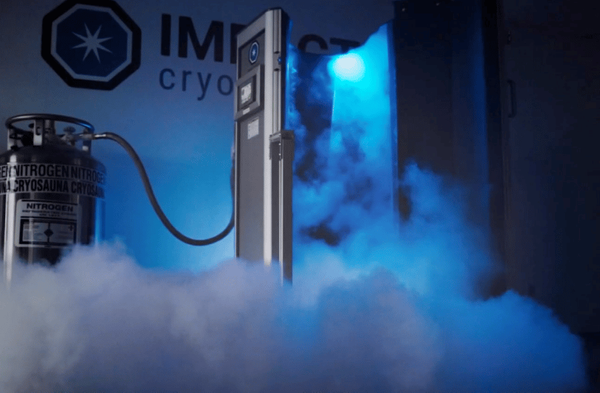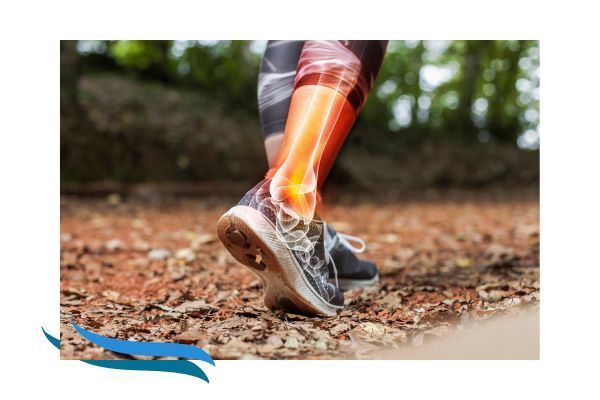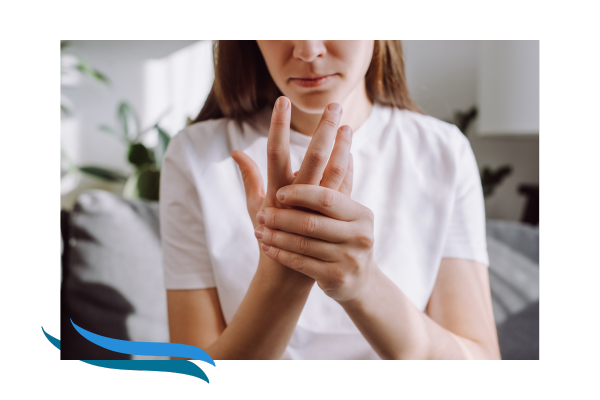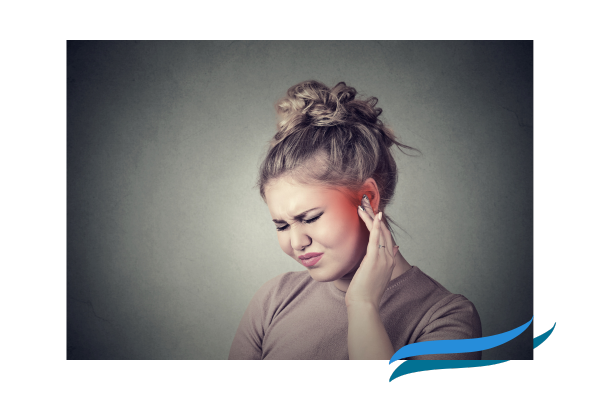Cryotherapy
Cryotherapy
Since 2011, people have undergone more than a half-million cryogenic therapy sessions around the world. Within the alternative healthcare realm, many are looking to cryotherapy to treat injuries, speed recovery, boost athletic performance, and even use cryotherapy for weight loss.

Cryotherapy Treatment Was Originally Developed in Japan in 1978 for the Treatment of Rheumatoid Arthritis

Transform Your Pre-Game or Pre-Workout Routine with Whole-Body Cryotherapy
Transform Your Pre-Game or Pre-Workout Routine with Whole-Body Cryotherapy
- **Unlock the Power of Hormonal Changes**
Whole-body cryotherapy (WBC) triggers a powerful spike in testosterone, a vital hormone for muscle growth that naturally ignites your competitive spirit. This surge enhances your motivation for training and prepares you for peak performance. Not only does elevated testosterone reduce pain perception—crucial for high-performance athletes—but WBC also curbs cortisol, the stress hormone that can sabotage your athletic potential. With an increase in vital hormones like dopamine, norepinephrine, and epinephrine, you’ll experience less muscular fatigue and improved overall performance, ensuring that you’re psychologically and physically ready for any challenge.
- **Maximize Muscle Fuel with Enhanced Blood Flow**
To perform at your best, your muscles need a steady supply of energy. Through cryotherapy, your body directs oxygenated blood to your muscles, providing the essential “fuel” for action. This improved blood flow not only boosts metabolism but also enhances muscular flexibility while significantly reducing the risk of injury—a game-changer for any athlete looking to gain an edge.
- **Elevate Your Cardiovascular Performance**
Cold exposure reduces your resting heart rate and leads to a more controlled heart rate increase during exertion. This means your body can maintain optimal core temperature, avoiding overheating during intense activities. With less energy spent on regulating body temperature, you’ll have more energy available for your performance, giving you the advantage you need to excel.
Experience the difference that whole-body cryotherapy can make in your training regimen and elevate your game to new heights!

Whole-body cryotherapy for recovery after exercise and competitions
**-Support for Oxidant/Antioxidant Balance**
Oxidative stress can severely hinder the oxygen transport functionality of blood and weaken muscle regeneration. Whole-body cryotherapy effectively combats the production of harmful exercise-induced oxidative substances, significantly boosting your muscular oxygen supply and enhancing overall performance.
**-Reduction of Inflammation**
While micro-tears and exercise-induced inflammation are crucial for building strength, they can also lead to pain and reflexive muscle deactivation, prolonging recovery time. By triggering an anti-inflammatory response, super-cold temperatures help flush out metabolic waste, delivering vital healing agents like oxygen and nutrients directly to damaged cells.
**-Minimization of Muscle Swelling and Soreness**
Whole-body cryotherapy is renowned for alleviating Delayed Onset Muscle Soreness (DOMS) linked to intense workouts and overtraining. By lowering lactic acid production, relieving tight muscles, and enhancing blood oxygenation, cryotherapy not only reduces pain and fatigue but also promotes muscle function and flexibility.
**-Increased Post-Exercise Energy Intake**
Post-exercise whole-body cryotherapy is highly advantageous for athletes, as it stimulates post-activity energy replenishment. This crucial boost aids effective muscle recovery and mitigates exercise-induced muscle damage, ensuring athletes are ready for their next challenge.
**-Improved Restful Sleep**
Any athletic professional will emphasize that proper rest is vital for recovery. Following strenuous exercise and competitive stress, falling asleep or obtaining deep, restorative sleep can be challenging. Thankfully, cryotherapy addresses sleep disorders by alleviating stress, managing anxiety, enhancing blood circulation, and rejuvenating both body and mind.

Whole-body cryotherapy for post-injury recovery
Athletes often face the challenges of muscle injuries, and issues like ankle and knee swelling, pain, sprains, and strains. Whole-body cryotherapy emerges as a game-changer, significantly accelerating recovery times and preventing injuries from becoming chronic. When paired with targeted treatments, it can also notably reduce post-surgery recovery durations for major injuries. This innovative therapy is especially effective for conditions requiring surgery, such as ACL, MCL, labrum, meniscus issues, and more.
With below-zero therapy, you can expect to:
• Alleviate pain effectively;
• Combat inflammation head-on;
• Diminish swelling in joints, soft tissues, and muscles;
• Restore mobility in restricted muscles and joints;
• Minimize time away from training sessions.
Additionally, cryotherapy has a remarkable benefit: it accelerates bone tissue regeneration. Regular whole-body cold exposure not only enhances recovery but actively supports injured bone healing, helping to prevent fatigue fractures that can develop subtly.
These compelling benefits illustrate the robust potential of whole-body cryotherapy—not just for recovery but also as a vital part of an athlete’s passive warm-up routine. Integrating this treatment with traditional warm-up practices can enhance performance, optimize recovery, and keep athletes at their best, both before competitions and between rigorous training sessions.

Many Report Improved Mood and Less Fatigue
Because your body reacts to all extreme changes in temperature when you reduce your core body temperature, you signal to your autonomic nervous system, which is in charge of automatic or unconscious functions. This system triggers a rise in your blood pressure, increases your heart rate, and releases norepinephrine, which is a stress hormone and neurotransmitter. When you are very cold, your body automatically reduces blood flow by constricting blood vessels. Once you exit the cryogenic chamber, your vessels return to normal and expand, and your blood now has more anti-inflammatory proteins than before your session. This is good news for injured, healing, or inflamed areas in your body.

Improvement for Rheumatic Diseases
Chronic pain in muscles and joints arises from conditions collectively known as rheumatic diseases, with rheumatoid arthritis being one of the most recognized. Recent research indicates that cryotherapy can significantly enhance the well-being of patients suffering from rheumatoid arthritis, leading to notable pain relief, improved mobility, and diminished functional impairment. Remarkably, these benefits can persist for up to three months following the conclusion of cryotherapy sessions. In comparison to traditional methods like cold pack applications and localized cold air treatments, whole-body cryotherapy demonstrates a significantly superior ability to alleviate the symptoms of rheumatoid arthritis. Furthermore, when aligned with traditional rehabilitation methods, whole-body cryotherapy effectively alleviates fatigue, reduces inflammation, and provides pain relief, proving to be a potent and beneficial addition to patient care.
When cryotherapy treatment is an option, it can improve patient recovery as well as or better than other methods traditionally used for rehabilitation and the treatment of rheumatoid arthritis. Cryotherapy can reduce the need for pain medications, improve the mental state of patients in pain, and enhance the overall well-being of patients using this therapeutic technique.
When studied in patients with other types of rheumatic disorders, cryotherapy treatment is equally successful in reducing pain and other negative symptoms.
These benefits include enhanced joint mobility and a reduction in pain that lasts up to two months after the final cryotherapy treatment.

A Decrease in Tinnitus Symptoms
Tinnitus, which is also known as ‘ringing in the ears,’ is usually a symptom of some other medical condition, like an ear injury or loss of hearing.
When exposed to whole-body cryotherapy, patients with tinnitus have shown a decrease in the intensity of the ringing.
In addition, cryotherapy can limit, in some cases, the degree to which hearing is lost or overall hearing damage.

